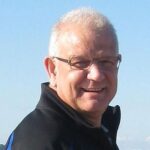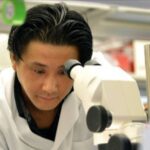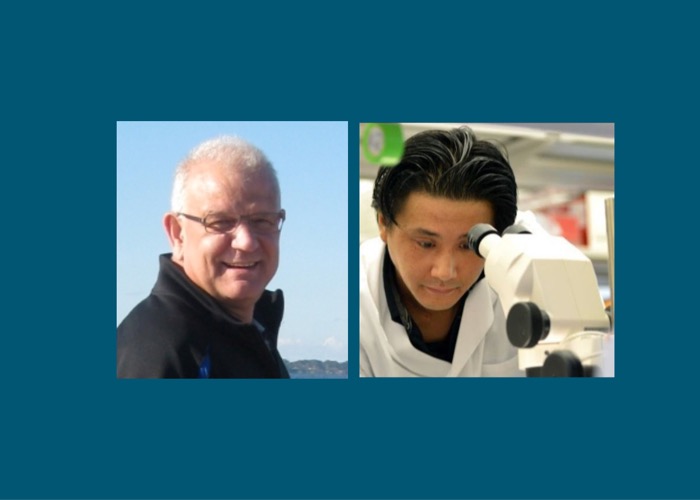This is a guest post by Sarah Marshall, originally published in the Undiagnosed Disease Network’s Participant Engagement and Empowerment Resource (UDN PEER).
In April 2021, I had the pleasure of interviewing Drs. Hugo Bellen [2021 GSA President] and Shinya Yamamoto about their work at the Model Organisms Screening Center (MOSC) at Baylor College of Medicine, which has been part of the UDN since 2015.

Dr. Bellen has a PhD in Genetics and Dr. Yamamoto has a PhD in Developmental Biology. Both also hold PhD’s in Veterinary Medicine. Dr. Bellen began his career as a scientist at the Baylor College of Medicine in 1989. He is a world-renowned fruit fly (Drosophila) genetics researcher whose work has been foundational to the understanding of the nervous system for diseases including Alzheimer’s, Parkinson’s disease, and ALS, among others. Dr. Yamamoto, a protégé of Dr. Bellen, is the co-director of the MOSC of the UDN, and the overarching goal of his research is to use fruit flies to identify new, rare human genetic variants associated with neurological disorders. Beyond the parameters of the UDN, the MOSC team works to deeply understand the impact of different genetic changes on human health so that treatments can be found.

As a partner with the UDN, the MOSC scientists become involved when a genetic change has been identified through a patient’s exome or genome sequencing, but it is not clear whether this change is actually related to the patient’s symptoms. Because humans share a surprisingly significant portion of their genes with fruit flies, the MOSC team often can modify a fly’s genome with the same mutation seen in the patient to see if similar symptoms are seen in the fly as in the patient. For example, if the patient has symptoms that impact the use of his or her legs, the MOSC scientists can modify the gene in the fruit fly to see if the same genetic change affects the use of the fly’s legs.
While many scientists work “behind the curtain” and have little interaction with patients and families, these two prolific researchers are working to change that paradigm. The personal conversations and stories keep them intensely motivated to do the work that they do and also helps to keep patients and families up to date about the status of their case. The MOSC is a wonderful resource for the UDN, and part of what makes the network a unique resource for patients and families with undiagnosed diseases.

About the Author:
UDN PEER member Sarah Marshall lives in Eden Prairie, MN with her four daughters; her youngest, 12-year-old Phoebe, is a UDN participant. As an experienced mom with an advanced degree in social work, she spends a great deal of her personal and professional time doing advocacy work.













